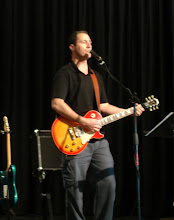Dear Parents,
This is my second "installment", if you will, in a series of emails I am sending out in order to clarify some things following the progress reports. Remember that the progress reports that just came home are just that...progress reports, and NOT report cards. These are to let you know approximately where your child is at this point in the trimester, but there is still a lot of time to bring those marks up. The 1st trimester ends on November 12th.
Second, Social Studies...
Our social studies grade also consists of 2 things, classwork (40% of their grade) and unit tests (60% of their grade). The classwork comes primarily from quizzes following each lesson from our tex/workbook, and the tests are made from the California State Standards and come directly from the quiz questions that are directly out of our social studies curriculum. Each lesson is approximately 3-4 pages long in our books and include pictures w/caption, maps, graphs, etc. There are also short videos that go with each lesson where they show places we are reading about, explain the vocabulary, talk to experts, and all of the questions that are on the quiz are usually answered.
In a typical lesson, we start by watching the video. Then we look at the quiz questions and multiple choice answers. Next we do a first read of the lesson in the book. On the next day of the lesson we look again at the questions and answers. Then we do a second read marking (underlining, circling, highlighting) where we have found the answers to the questions we just looked at. We watch the video a second time, and then they are given the quiz, and they are told to use their books to find the answers where they had just marked them. Finally, I correct them, and realize that most of the class does not pass the quiz. As you can imagine, this has been very disheartening.
After thinking through this, I was reminded that 4th grade is VERY important year developmentally in the area of reading. There is a big jump coming from K-3 primary grades in more of a "learning to read" environment into what is now becoming more of a "reading to learn" environment. Social studies and science are Expository Non-fiction reading passages that the students are less familiar with. Not that they haven't done any of that reading prior to 4th grade, but the reading of this genre for understanding in these content areas becomes much more prevalent as the students move out of the primary grades. Therefore...
...And AR
Here's where we are making a connection with Accelerated Reader. The students have been told since we began AR that they can check out 3 books from the library at a time: one must be a chapter book, the 2nd should be another AR book of any kind, and the 3rd is what we call a "free" book that they can get that does not have to be testable. I have made an adjustment to this as of last week. In order for the students to gain more exposure to expository/non-fiction genre books, I have told them that once a week (Fridays, since that is when our class goes to the library), they have to pick an expository/non-fiction book as their 2nd AR book pick. I have discussed this with Mrs. Sayles, our school librarian, and she and I have both discussed this at length with the class.
Expository books are almost always more difficult to read than fiction or chapter books; therefore, we have both told the students several times that they must pick expository books that are at the lowest end of their ZPD (reading level book range) and can pick expository books that are LOWER than their levels since they tend to be a full grade level more difficult than a chapter book at the same level. We have also stressed to them that they find expository books that are of INTEREST to them. For example, if they like animals, pick animal book, and if they don't like sports, DON'T pick a book about football. These books tend to be short half point books, so they are quick to read, so I have told them to read them at least twice, like we do with social studies, before they take the test on them. My hope is that by giving them more exposure to expository text, especially when they can choose easier level books that are of interest to them, that their comprehension skills on this genre will improve in all other areas. These can also easily be read while still enjoying those big old, fun chapter books that they are reading and they can pick up a few more points here and there in the process. It's a WIN-WIN-WIN situation!
More to come...
Thank you,
Mr. Shaw
